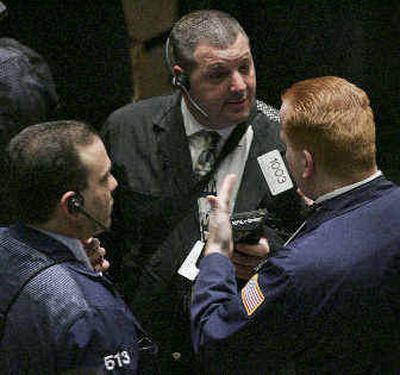New rules OK’d for stock orders

WASHINGTON — A divided Securities and Exchange Commission approved a set of rules Wednesday designed to protect investors by requiring traders to accept the best quoted price for any transaction, no matter which market it comes from.
By a 3-2 vote, with the Commission’s two Democrats siding with Republican Chairman William Donaldson, the commissioners extended the reach of a regulation requiring brokers to obtain the best possible price for customer orders even if it means going to another market and takes longer. Stock traders could no longer ignore a better price in favor of sending an order to a preferred market, which might allow for faster execution.
The five-member panel tentatively approved the plan, called Regulation National Market System, or Reg NMS, in December. SEC Chairman William Donaldson has since defended it before fierce Republican critics in Congress, who have raised the possibility of a legislative challenge to the agency.
“In formulating this proposal, we have kept our eye on one overriding objective, the protection of investors, with particular attention to small investors,” Donaldson said. “The proposed trade-through rule would strengthen the confidence of all types of investors in the U.S. equity markets.”
A trial implementation, involving 100 stocks on the NYSE, 100 from the Nasdaq and 50 from the American Stock Exchange, will begin April 10, 2006. Full implementation of the rule is scheduled for June 12, 2006.
Proponents said the rule would save investors $321 million each year by ensuring that investors receive the best price for their stock.
GOP commissioners, however, noted that $321 million was a tiny fraction of the $18.7 trillion in stocks traded each year, and that the costs of implementing the rule and the time and resources brokers and traders would take in defending their trades to SEC regulators would outweigh the benefits.
Stretching the trading rule, critics say, would give an unfair advantage to the NYSE, which offers best price as its strong suit, over all-electronic rivals such as the Nasdaq Stock Market and a raft of smaller, newer electronic markets which offer speedier processing of trades.